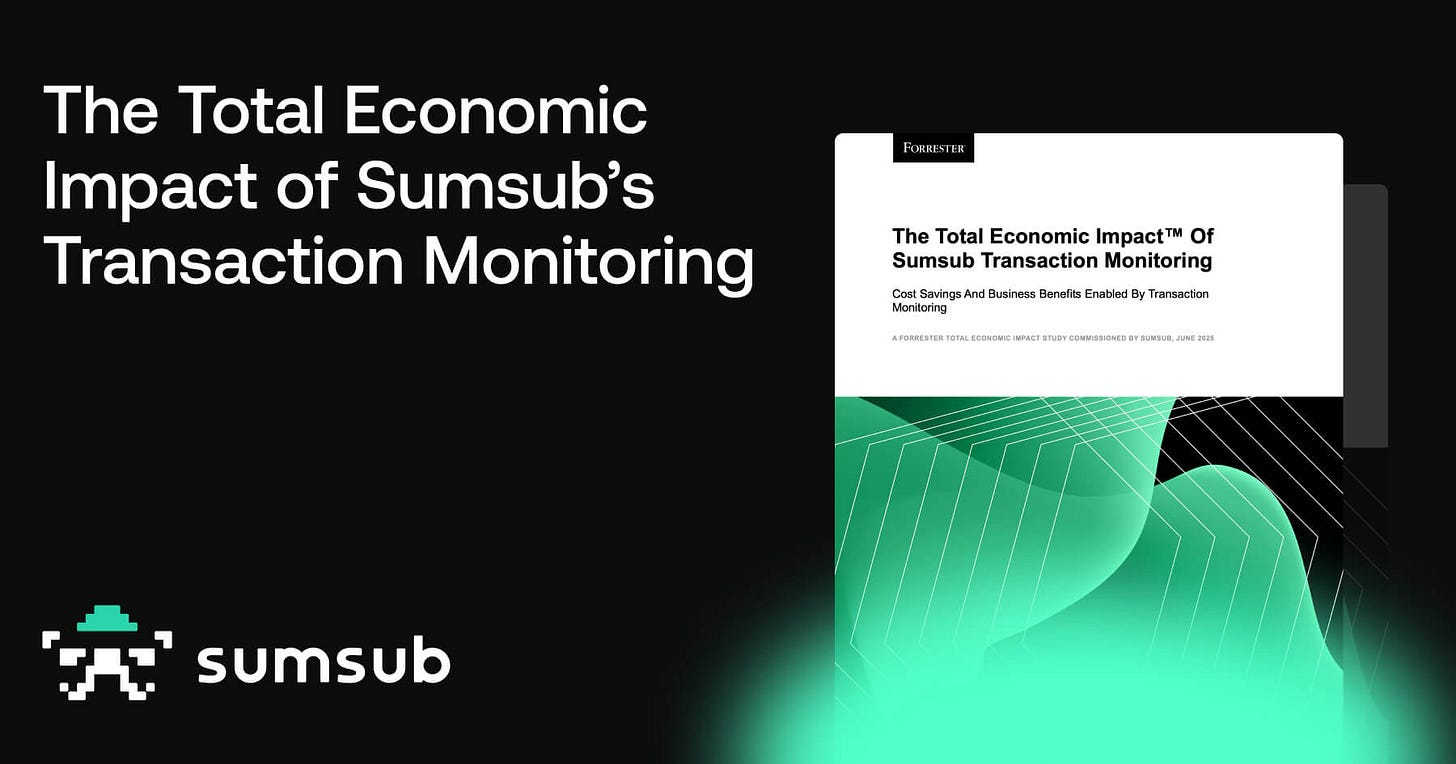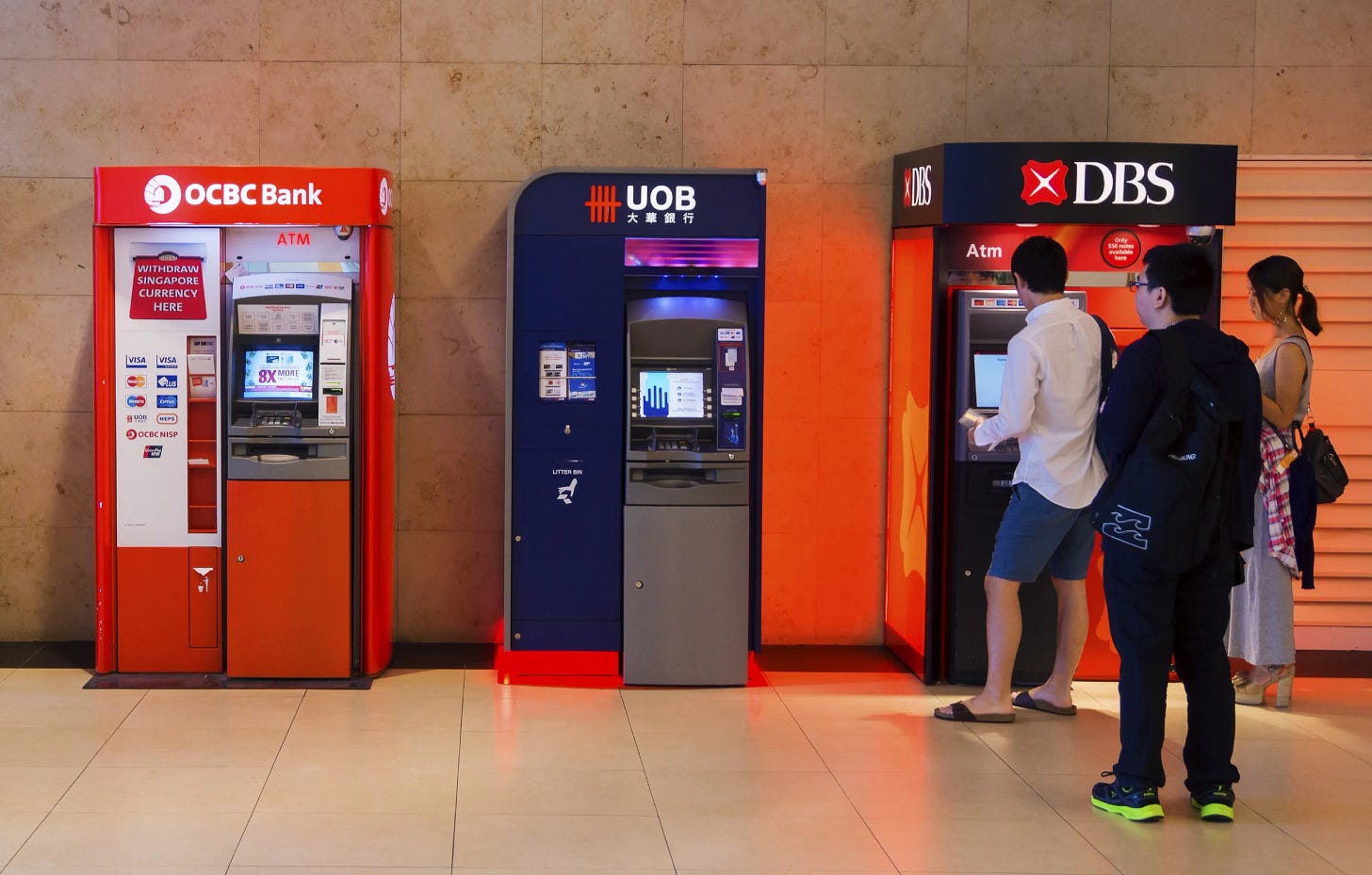Reports: (Gen)AI in Payments: The Impact Is Real; AI in Fintech Is No Longer a Bonus—It's the Backbone; Stablecoins Go Mainstream: The Rise of Money Movement 2.0;
Let’s dive into this week’s curated collection of fintech reports, whitepapers, and expert guidelines in the latest edition of Fintech Wrap Up. Every resource featured is available for download.
Insights & Reports:
1️⃣ Singapore SME Banking: Democratizing API Access
2️⃣ Stablecoins Go Mainstream: The Rise of Money Movement 2.0
3️⃣ AI in Fintech Is No Longer a Bonus—It's the Backbone
4️⃣ The Total Economic Impact of Sumsub Transaction Monitoring
5️⃣ (Gen)AI in Payments: The Impact Is Real
6️⃣ CFO Stacks, Embedded Finance, and AI: Inside Fintech’s Next Wave
7️⃣ How Tokenized Cash Enables Next-Gen Payments
TL;DR:
Welcome to Fintech Wrap Up, where the future of finance is unfolding in real time.
This week, we’re seeing fintech’s “everything, everywhere, all at once” moment across APIs, stablecoins, and AI. Singapore is leading the charge in SME banking by turning APIs from an exclusive tool for big banks into an everyday utility for startups, payroll apps, and SaaS platforms. The result? Faster credit decisions, automated reconciliation, and real-time visibility for the small businesses that power the city-state’s economy.
Stablecoins, meanwhile, have officially grown up. With $250 billion in circulation and $2.3 trillion in monthly volume, they’re powering instant, low-fee global payments and programmable commerce for everyone from Stripe to Walmart. Money now moves at “software speed,” bypassing the slow, costly rails of traditional banking and opening the door for machine-to-machine transactions, global payroll, and cross-border liquidity management that actually works.
And then there’s AI—the invisible engine making fintech smarter and more personal. From Mastercard’s real-time fraud prevention to PayPal’s predictive recommendations and GenAI copilots for banks, AI is transforming both back-end efficiency and front-end customer experience. The throughline? Fintech is no longer just about shiny apps; it’s about invisible infrastructure that moves faster, thinks smarter, and earns trust. Those who combine speed, intelligence, and reliability will define the next era of finance.
Thanks for reading Fintech Wrap Up—we’ll see you in the future of finance.
Insights
Reports
Singapore SME Banking: Democratizing API Access
Singapore has long stood as a beacon of financial innovation in Asia, and today, its next frontier is in empowering small and medium-sized enterprises (SMEs) through democratized API access. This shift is not just about technical upgrades—it’s about ecosystem-wide collaboration, transparency, and open dialogue.
- Why API Access Matters for SMEs
APIs are the plumbing of modern finance. For large institutions, they’ve long been a powerful tool to integrate services, automate workflows, and streamline user experiences. But for SMEs—who form the backbone of Singapore’s economy—access to APIs has historically been limited, creating bottlenecks in innovation, financial management, and operational efficiency.
With the rise of embedded finance, the demand from SMEs to tap into banking infrastructure is growing. Whether it's for expense management, payroll, invoicing, or lending, open APIs offer a path for fintechs and service providers to build more tailored, responsive tools.
- The Current Landscape
Singapore's financial authorities and fintech ecosystem are actively pushing for more inclusive API infrastructure. The API Playbook by ABS and MAS provides guidance on standardizing data sharing and ensuring security, creating a shared foundation that banks, fintechs, and software providers can build upon.
Platforms like Funding Societies and Sleek have already begun using API-driven models to serve SMEs with faster credit underwriting and streamlined business services. These examples highlight what’s possible when API access is treated as a utility rather than a privilege.
Keep reading with a 7-day free trial
Subscribe to Fintech Wrap Up to keep reading this post and get 7 days of free access to the full post archives.



